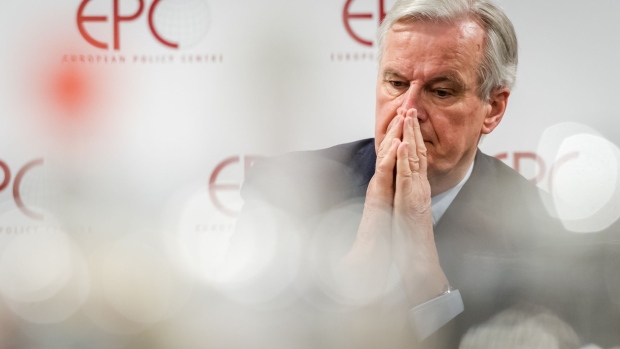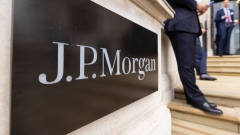Jul 15, 2019
U.K. and EU Brexit talks get more hostile as new offer mulled
, Bloomberg News

A meeting of chief Brexit negotiators last week was one of the most difficult encounters of the last three years, according to European officials, who are bracing for talks to become more hostile under the next British government.
The EU side is weighing up possible concessions it could offer the U.K. to avoid a chaotic no-deal Brexit, according to European officials speaking on condition of anonymity.
But the encounter between Brexit Secretary Stephen Barclay and the EU’s chief Brexit negotiator Michel Barnier in Brussels risks hardening the EU’s stance, making it more difficult to find a way out of the deadlock. Two officials said the U.K. now appeared to be trying to bully the EU into concessions.
A spokesman for the U.K.’s Brexit department said the meeting had been “constructive.”
The EU side is braced for the prospect of Boris Johnson -- someone they see as an untrustworthy populist -- becoming prime minister. Johnson is taking a tougher line than Prime Minister Theresa May, vowing to leave the bloc on Oct. 31, with or without a deal.
Front-runner Johnson, or perhaps his underdog rival Jeremy Hunt, is due to take office next week.
Both candidates for U.K. prime minister have promised to renegotiate the Irish backstop, the most toxic part of the Brexit deal that May negotiated. They are both willing to accept a no-deal exit if the bloc won’t talk. The EU says the deal isn’t up for renegotiation.
Even in private, EU officials echo that line. But there are early discussions internally over a package of measures that would aim to make it more palatable in the U.K. so the next prime minister has a chance of getting it ratified by a divided Parliament.
It falls short of what both men have said they want on the campaign trail, and could include:
- Further commitments to look at technological solutions for the Irish border and to move quickly to a full trade deal with the U.K., based on a package of compromises May won in Strasbourg in March.
- Making a formal link between achieving a post-Brexit future trade deal and the payment of the U.K.’s financial settlement -- estimated by the British government to be 39 billion pounds.
- Offering again to make the backstop apply only to Northern Ireland rather than the whole of the U.K., which May originally rejected.
- Rewriting the “political declaration” on future relations that could underline the U.K.’s independent global trade policy.
The bloc is wary of offering Hunt, and particularly Johnson, significantly more than they gave May. However, officials say they still have some ammunition left, as they held some concessions back when it became clear that May was unlikely to get the deal through Parliament, no matter what they gave her.
Brexit diplomats from the 27 national governments in Brussels have been told to be on standby throughout August should discussions between the two sides resume in earnest. They aren’t expecting significant movement until the second half of the month at the earliest.
And officials are open to delaying Brexit beyond Oct. 31. Discussions between diplomats indicate that the EU is very unlikely to force Britain out of the bloc without a deal, a view bolstered by remarks made by the president-designate of the European Commission.
“Should more time be required, and should there be good reasons provided, I will support a further extension,” Ursula von der Leyen said on Monday in a letter to EU lawmakers.







